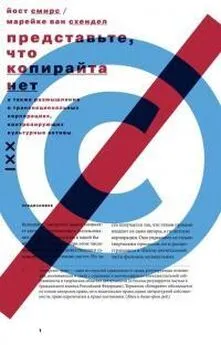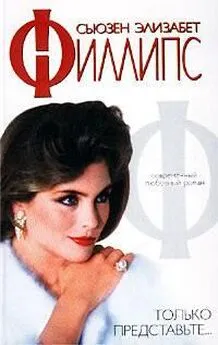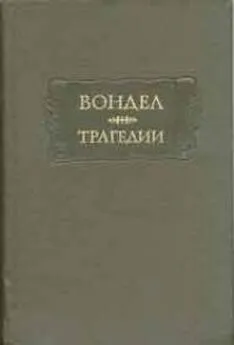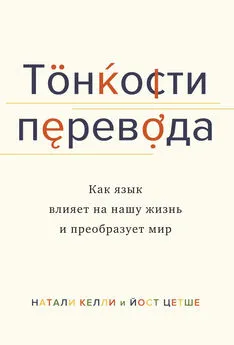Йост Смирс - Представьте, что копирайта нет
- Название:Представьте, что копирайта нет
- Автор:
- Жанр:
- Издательство:неизвестно
- Год:неизвестен
- ISBN:нет данных
- Рейтинг:
- Избранное:Добавить в избранное
-
Отзывы:
-
Ваша оценка:
Йост Смирс - Представьте, что копирайта нет краткое содержание
Представьте, что копирайта нет - читать онлайн бесплатно полную версию (весь текст целиком)
Интервал:
Закладка:
Howe J. Crowdsourcing. Why the Power of the Crowd Is Driving the Future of Business. — New York: Crown Business, 2008.
Keen A. The Cult of the Amateur. How Today’s Internet is Killing Our Culture. — New York: Doubleday, 2007.
Klein N. The Shock Doctrine. The Rise of Disaster Capitalism. — London; New York: The Penguin Press, 2007.
Kretschmer М. Intellectual Property in Music: A Historical Analysis of Rhetoric and Institutional Practices, special issue Cultural Industry (ed. P. Jefifcutt). — Studies in Cultures: Organizations and Societies, 1999, 6. — P. 197-223.
Kretschmer M, Kawohl F. The History and Philosophy of Copyright // Frith and Marschall. — 2004. — P. 21-53.
Lane G, Bachmann R. (eds.). Trust Within and Between Organizations. Conceptual Issues and Empirical Analysis. — Oxford: Oxford University Press, 2001.
LessigL. The Future of Ideas. The Fate of the Commons in a Connected World. — New York: Vintage, 2002.
Lessig L. Free Culture. How Big Media Uses Technology and the Law to Lock Down Culture and Control Creativity. — New York: The Penguin Press, 2004.
Lessig L. Remix. Making art and commerce thrive in the hybrid economy. — London: Bloomsbury, 2008.
Lewinski S. von. Indigenous Heritage and Intellectual Property. Genetic Resources, Traditional Knowledge and Folklore. — The Hague: Kluwer Law International, 2002.
Litman J. Digital Copyright. — Amherst; New York: Prometeus Books, 2001.
Lovink G., RossiterN. (eds.). MyCreativity Reader. A Critique of Creative Industries. — Amsterdam: Institute of Network Cultures, 2007.
Lovink G. Zero Comments. Blogging and Critical Internet Culture. — New York; London: Routledge, 2008.
Lovink G., Niederer S. (eds.). Responses to YouTube. — Amsterdam: Institute of Network Cultures, 2008a.
Macmillan F. Copyright and corporate power. — In Towse, 2002. — P. 99-118.
Malm K. Copyright and the Protection of Intellectual Property in Traditional Music, Music, Media, Multiculture. — Stockholm: Musikaliska akademien, 1998.
Martel F. De la culture en Amérique. — Paris: Gallimard, 2006.
Maxwell R. (ed.). Culture Works. The Political Economy of Culture. — Minneapolis: University of Minnesota Press, 2001.
McChesney R. W. Rich Media, Poor Democracy. Communication Politics in Dubious Times. — Urbana; Chicago: University of Illinois Press, 1999.
McChesney R. W. Communication Revolution. Critical Junctures and the Future of Media. — New York: The New Press, 2007.
Mossetto G., Vecco M. (eds.). The Economics of Copying and Counterfeiting. — Milano: FrancoAngeU, 2004.
Motavalli}. Bamboozled at the Revolution. How Big Media Lost Billions in the Battle for the Internet. — New York: Viking, 2002.
Naim M. Illicit. How smugglers, traffickers, and copycats are hijacking the global economy. — New York: Doubleday, 2005.
Netanel N. W. Copyrights Paradox. — Oxford; New York: Oxford University Press, 2008.
Nimmer M. B., Getter P. E. International Copyright Law and Practice. — New York: Bender, 1988.
Nimmer M. B., Nimmer D. Nimmer on Copyright: A Treatise on the Law of Literary, Musical and Artistic Property, and the Protection of Ideas. — New York: Bender, 1994.
Nooteboom B. Trust. Forms, Foundations, Functions, Failures and Figures. — Cheltenham: Edward Elgar, 2002.
Nuss S. Copyright & Copyriot. Aneignungskonflikte um geistiges Eigentum im informationeilen Kapitalismus. — Münster: Westfälisches Dampfboot, 2006.
Obüljen N., Smiers J. Unesco’s Convention on the Protection and Promotion of the Diversity of Cultural Expressions. Making It Work. — Zagreb: Culturelink, 2006.
Perelman M. Steal This Idea. Intellectual Property Rights and the Corporate Confiscation of Creativity. — New York, Palgrave, 2002.
Pérez de Cuellar J. Our Creative Diversity. Report of the World Commission on Culture and Develoipment. — Paris: Unesco Publishing, 1996.
Picciotto S. Defending the Public Interest in TRIPS and the WTO. — In Dra-hos, 2002, —P.224-243.
Pietrobelli C., Sverrisson A. Linking Local and Global Economies. The ties that bind. — London: Routledge, 2004.
Polanyi K. The Great Transformation. The Political and Economic Origins of Our Time. — Boston: Beacon Press, 1957.
Pugatch M. R, Jensen A. Healthy IPRs. A Forward Look at Pharmaceutical Intellectual Property. — London: The Stockholm Network, 2007.
Renschler R. The Entrepreneurial Arts Leader. Cultural Policy, Change and Reinvention. — Queensland: The University of Queensland press, 2002.
Ricketson S., Ginsburg J. C. International Copyright and Neighbouring Rights: The Berne Convention and Beyond. — Oxford: Oxford University Press, 2006.
Rifkin J. The Age of Access. The New Culture of Hypercapitalism, Where AU of Life is a Paid-for Experience. — New York: Jeremy P. Tarcher; Putnam, 2000.
Rose M. Authors and Owners. The Invention of copyright. — Cambridge, Mass.: Harvard University Press, 1993.
Rossiter N. Organized Networks. Media Theory, Creative Labour, New Institutions. — Rotterdam: NAi, 2006.
Rushdie S. Shame. — London: Picador, 1993.
Said E. W. Culture and Imperialism. — New York: Alfred A. Knopf, 1993.
Schiller D. Digital Capitalism. Networking the Global Market System. — Cambridge: MA; London: The MIT Press, 2000.
Sherman B., Strowel A. (eds. ). Of Authors and Origins: Essays on Copyright Law. — Oxford: Clarendon Press, 1994.
Shiva V. Biopiracy. The Plunder of Nature and Knowledge. — Boston MA: South End Press, 1997.
Shiva V. Protect or Plunder? Understanding InteUectual Property Rights. — London: Zed Books, 2001.
ShohatE., Stain R. Unthinking Eurocentrism. Multiculturalism and the Media. — London; New York: Routledge, 1994.
Shulman S. Owning the Future. — New York: Houghton Mifflin Company, 1999.
Siwek S. E. Copyright Industries in the U.S. Economy. — Washington: Economists Incorporated, 2007.
Smiers J. État des lieux de la création en Europe. Le tissu culturel déchiré. — Paris, 1998.
Smiers J. La propriété intellectuelle, c’est le vol! Plädoyer pour l’abolition des droits d’auteur. — In Le Monde Diplomatique, Septembre, 2001.
Smiers J. Arts Under Pressure. Promoting Cultural Diversity in the Age of Globalization. — London: Zed Books, 2003.
Smiers J. Artistic Expression in a Corporate World. Do We Need Monopolistic Control? — Utrecht: Utrecht School of the Arts, 2004.
Smiers J. Creative Improper Property. Copyright and the Non-Western World. — In Third Text, Vol. 22, Issue 6, November, 2008. — P. 705-717.
Stallabrass J. Art Incorporated. The Story of Contemporary Art. — Oxford: Oxford University Press, 2004.
Tadelis S. The Power of Shame and the Rationality of Trust. — München: Hans Möller Seminar, 2006.
TapscottD., Williams A. D. Wikinomics. How Mass Collaboration Changes Everything. — New York: Portfolio, 2008.
Thomas P. N., Nain Z. (eds. ). Who Owns the Media? Global Trends and Local Resistances. — London: Zed Books, 2004.
Toulouse J. M. L’Entrepreneurship au Quebec. — Montreal: Les Presses H. E. C., 1980.
Toynbee J. Creating Problems. Social Authorship, Copyright and the Production of Culture. — Milton Keynes: The Pavis Centre for Social and Cultural Research, 2001.
Towse R. Copyright, Incentive and Reward. An Economic Analysis of Copyright and Culture in the Information Age. — Rotterdam: Erasmus University, 2000.
Towse R. (ed.). Copyright in the Cultural Industries. — Cheltenham: Edward Elgar, 2002.
Towse R. ( ed. ). A Handbook of Cultural Economics. — Cheltenham: Edward Elgar, 2003.
Towse R. Copyright and Cultural Policy for the Creative Industries. — In Grandstand, 2002. — P. 1-10.
Towse R. Copyright and Economics. — In Frith and Marshall, 2004. — P. 54-69.
Towse R. Copyright and Creativity. Cultural Economics for the 21st Century. — Rotterdam: Erasmus University, 2006.
Utton M. A. Market Dominance and Antitrust Policy. — Cheltenham: Edward Elgar, 2003.
Vaidhyanathan S. Copyrights and Copywrongs. The Rise of Intellectual Property and How It Threatens Creativity. — New York; London: New York University Press, 2001.
Vaidhyanathan S. The Anarchist in the Library. How the Clash Between
Freedom and Control is Hacking the Real World and Crashing the System. — New York: Basic Books, 2004.
Wendland W. Intellectual Property and the Protection of Cultural Expressions. The Work of the World Intellectual Property Organization (WIPO). — In Grosheide,2002. — P. 102-138.
Wilkin P. The Political Economy of Global Communication. — London: Pluto Press, 2001.
Zimmerman D. L. Living without Copyright in a Digital World. — In Albany Law Review, 2008.
Zittrain }. The Future of the Internet and How to Stop It. — New Haven; London: Yale University Press, 2008.
Об авторах
Йост Смирс
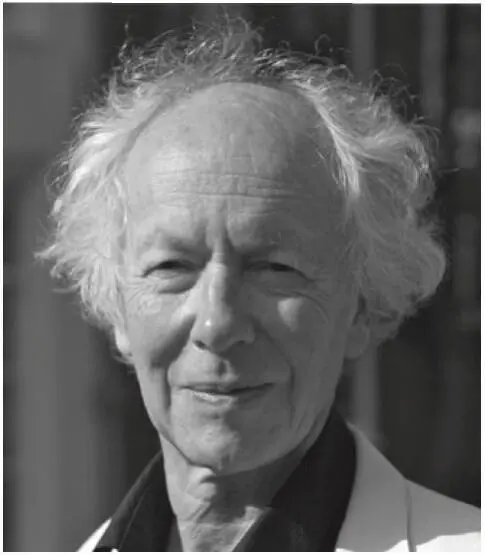
Эксперт в области культуры и интеллектуальной собственности. Известен, в первую очередь, своими предложениями по отмене копирайта и дроблению крупных издательских, звукозаписывающих и кинопродюсерских корпораций на более мелкие предприятия с целью поддержания культурного разнообразия и прекращения доминирования на рынках компаний-гигантов. Имеет докторскую степень в области политологии (1977, Амстердамский университет); в настоящее время является членом Исследовательской группы экономики искусств при Утрехтской школе искусств (Нидерланды), а также членом исследовательской сети AHRB, занимающейся разработкой новых направлений в законодательстве по авторскому праву Беркбек-колледжа Лондонского университета. Его книги «Искусство под прессом: расширение культурного разнообразия в эпоху глобализации» и «Представьте, что копирайта нет» были переведены на множество языков мира.
Марейке ван Схендел

Интервал:
Закладка:
